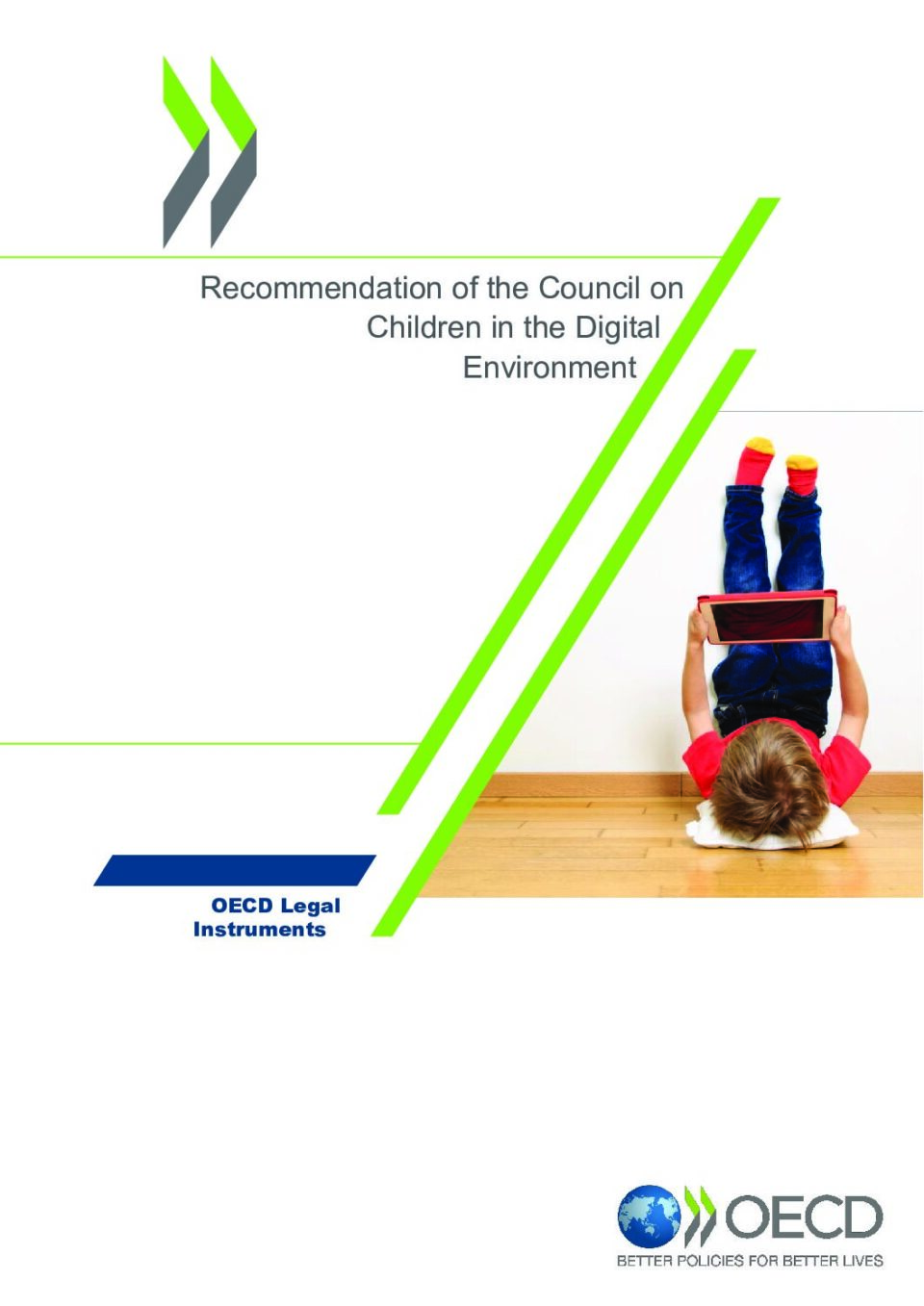OECD Recommendations on children in the Digital Environment
In recent years, the digital landscape has transformed significantly. Children now spend far more time online across various devices such as smartphones, tablets, smartwatches, and connected speakers. Their online activities have also expanded beyond simple tasks like research or educational purposes to include entertainment, communication, and socialising with peers. While the digital environment provides enormous benefits and opportunities, it also presents new and evolving risks.
The updated OECD Recommendation on Children in the Digital Environment is the result of four years of in-depth analysis and consultation. It revises the 2012 version, aiming to strike a crucial balance: protecting children from risks while maximising the benefits and opportunities of the digital environment.
The Recommendation consists of several key sections:
- Principles for ensuring a safe and beneficial digital environment for children: these principles apply to both public and private organisations that influence policies or provide services for children online. They emphasise the child’s best interests as paramount, advocating for proportionate measures that respect rights, build empowerment, and foster resilience in both children and their parents or carers. The principles also encourage inclusion, multi-stakeholder cooperation, and child participation.
- Recommendations to governments regarding their overarching policy framework: this section calls for coherent policy frameworks, effective legal measures, and evidence-based responses. It promotes digital literacy as an essential tool for navigating the online world and encourages the development of age-appropriate child safety measures by design and responsible business conduct.
- Promoting international co-operation: highlighting the importance of collaboration between countries, this section emphasises the development of shared standards through international and regional networks.
- Guidelines for Digital Service Providers: the final section calls on Digital Service Providers to respect the Guidelines when taking actions that may directly or indirectly affect children in the digital environment.
The OECD Recommendations support member countries by providing the framework for evidence-based policymaking and enhanced coordination between all stakeholders. This ensures a safer, more empowering digital environment for children.

